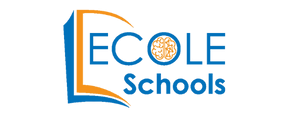Ecole Schools’ curriculum policy is designed to provide a dynamic, hands-on, and project-based learning experience tailored to each student’s career goals and future aspirations. The focus is on nurturing individuals who are not just memorizers but creators, inquirers, and self-directed learners who take charge of their educational journey.
1. A Dynamic and Adaptable Curriculum
Ecole Schools follows a flexible and continuously evolving curriculum that keeps pace with global changes. As knowledge is constantly updated, new professions emerge, and access to information becomes easier, the curriculum is structured around:
- Global competencies
- Career-oriented structures
- Essential literacy skills
- Practical applications in real life
2. Conceptual and Project-Based Learning
The curriculum integrates multiple approaches, including:
- Integrated Curriculum
- Project-Based Curriculum
- Thematic Curriculum
Lessons are designed around specific concepts, helping students develop a holistic understanding by making interdisciplinary connections and applying their knowledge to real-life scenarios.
3. Learning to Learn (Foundational Courses)
Beyond academic success, Ecole Schools prioritizes independent learning skills. Every student takes foundational “Learning to Learn” courses, which equip them with essential skills such as:
- Research Techniques & Digital Literacy: Learning effective research methods, digital skills, and artificial intelligence literacy.
- Efficient Reading & Information Processing: Enhancing reading speed, creating knowledge maps, synthesizing information, and preparing structured presentations.
- Presentation & Communication Skills: Developing the ability to ask meaningful questions and present ideas effectively.
- Diverse Thinking Methods: Adopting various thought processes, including analytical, creative, and strategic thinking, to solve different types of problems.
- Problem-Solving Skills: Strengthening students’ ability to analyze situations, evaluate multiple perspectives, and develop effective solutions.
- Personal & Leadership Development: Enhancing emotional intelligence, self-awareness, and leadership qualities.
- Critical & Creative Thinking: Encouraging students to approach challenges with innovative problem-solving strategies.
- Strategic Planning & Execution: Applying theoretical knowledge to real-world projects, reinforcing strategic thinking and coordination skills.
- Collaboration & Teamwork: Learning to work with diverse perspectives in group projects, fostering teamwork and communication.
- Adaptability & Flexibility: Developing the ability to approach problems from multiple angles and adapt to different situations.
These competencies not only enhance academic performance but also prepare students to tackle challenges in all areas of life with confidence and leadership.
4. Compulsory and Elective Courses
The curriculum is structured to balance core requirements with personalized learning:
- Compulsory Courses: Cover fundamental literacy and life skills, ensuring all students acquire essential competencies.
- Elective Courses: Offer students a range of choices aligned with their career interests, allowing them to customize their education.
5. Core Subjects and 21st-Century Skills
The curriculum emphasizes key subjects that foster modern competencies:
- Social Sciences: Global awareness, logical reasoning, media and citizenship literacy, multicultural respect, and management skills.
- Sciences: Environmental and health literacy, innovation, and scientific project development.
- Mathematics: Financial literacy, engineering concepts, statistical knowledge, and practical applications.
- English (Mother Tongue): Fast reading, critical thinking, presentation techniques, and effective communication skills.
6. Applied and Real-Life Learning
Ecole Schools integrates real-world applications into the learning experience. Each course:
- Addresses real-life challenges.
- Includes applied projects and interdisciplinary collaboration.
- Incorporates soft skills such as communication, leadership, entrepreneurship, and teamwork.
7. Lifelong Learning and Career Preparation
Beyond acquiring academic knowledge, students develop a lifelong learning mindset, taking responsibility for their education. This ensures that:
- Learning continues beyond graduation.
- Knowledge is retained for lifelong application, not just for exams.
- Students build their career paths consciously and with purpose.
By fostering adaptability, creativity, and leadership, Ecole Schools equips students with the tools to navigate the complexities of the modern world with confidence and competence.






